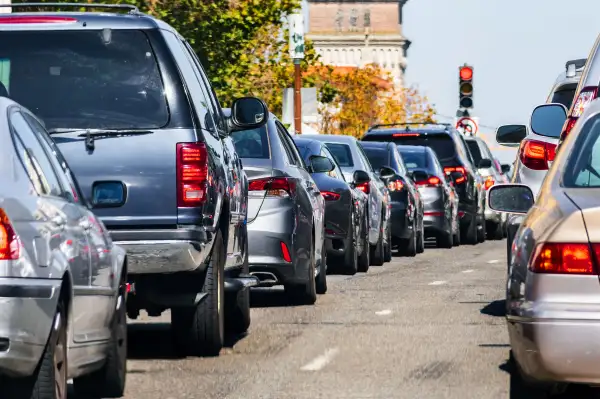Inflation Is Hitting the Middle Class Especially Hard

New research suggests that the middle class is being hit harder by inflation than the very rich — or the very poor.
If you've spent any time browsing for cars or even just filling up your gas tank, you'll have a good idea why this is so.
Far from being "transitory" as policymakers initially expected, high inflation looks like it might instead be a defining feature of 2022 — and perhaps beyond. A whopping 96% of economists surveyed for a recent World Economic Forum report now expect American families to contend with “high” or “very high” inflation through the rest of the year. Russia’s invasion of Ukraine in February was a main catalyst for the gloomier outlook, throwing prices of energy and food into even greater disarray.
The most recent Consumer Price Index found that inflation jumped by 8.6% from a year earlier — the highest since 1981 — while core inflation rose by 6%. Food and energy prices, although they are stripped out of the “core” inflation metrics that economists look at, represent the biggest challenges to household budgets, given the speed with which prices have risen — and the need to buy both gas and groceries regularly.
This is one key reason why analysts are finding that the burden of higher prices is not shouldered equally. A new report from the Bank of America Institute found that the inflation faced by middle-income families (defined as having average annual income of roughly $78,000) as of May was the equivalent of 9.4% on an annualized basis.
“Basically, the 40% to 80% distribution, they're facing the biggest inflation,” says Anna Zhou, economist for the Bank of America Institute.
Two big culprits are rising prices for cars (both new and used) and gasoline. BLS data through May shows annual price increases of 14% and 50%, respectively, for these two categories. And unfortunately, the middle class spends a disproportionately large chunk of their income on those expenses.
Zhou found that the combined cost of buying a car and keeping it filled consumes 12.6% of their annual earnings. By comparison, the richest quintile spend 10.7% of their income on these two things, and the poorest 40% of Americans spend 11.1%.
As inflation has broadened to encompass an expanding array of goods, including food and utilities, Zhou says this discrepancy could become less pronounced. “Inflation is broad-based, showing up in every single sector,” she says. “That's why you’re seeing a narrowing.”
Economists’ big worry is that Americans will clamp down on spending as prices increase, throttling the economy’s largest source of momentum and potentially triggering a recession. In fact, Zhou’s research does show inflation-adjusted spending falling across several categories of goods, such as furniture and jewelry.
She also uncovered some good news, though: By using consumer price data alongside aggregated Bank of America card spending data, Zhou noted that inflation-adjusted spending in service-sector categories like restaurants, hotels and plane tickets is on the rise. This bodes well for the economy.
“Definitely, the pent-up demand in services remains resilient and consumers do have the ability to pay for it,” she says. "Should this demand be unleashed, it would really support consumer spending in the short to medium term."
More From Money:
How to Save Money During a Summer When Everything Is Super Expensive
The 'Savings Boom Is Over' as Americans Scramble to Cope With Inflation
